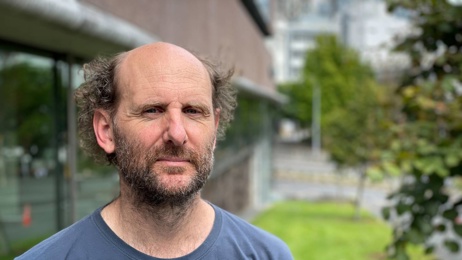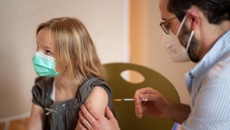GPs expect they may soon have to treat Covid-19 patients who have been told to stay home as the outbreak threatens to snowball to the extent quarantine facilities can't cope.
Dr Bryan Betty, medical director of the College of General Practitioners, told the Weekend Herald that Wellington officials were finally paying attention to the looming problem.
However, he worried that time was running out.
"The elimination strategy has been very successful, and we haven't had to confront these issues. But what we are seeing in Auckland at this point is a situation where it is pretty finely balanced.
"It wouldn't take much for the numbers to tip over here and MIQ to be stretched beyond capacity. There is very little capacity within the basic day-to-day running of the hospitals for extra load. In which case, there has to be a Plan B for overflow."
Even if the current outbreak is successfully suppressed, Betty said current systems wouldn't cope for long when border restrictions are eventually loosened and the virus becomes endemic - meaning it won't disappear even with high vaccination rates, but will instead regularly circulate in the population, particularly the unvaccinated, possibly flaring up into significant outbreaks.
He cited Ontario, Canada, as an example of what New Zealand could soon face. Hospitals filled up with Covid patients, he said, and plans for an MIQ-type system to hold them didn't work. The overflow was then the job of general practice and community medical centres to absorb.
"Practices were funded to take on the patients, maybe see them face-to-face, and then put in a system where patients were given things like oxygen saturation meters to have at home so they could monitor their oxygen saturation every day, and their blood pressure and temperature."
A daily telehealth consultation was done, Betty said, and if a person's oxygen saturation fell below a certain threshold they were hospitalised.
That model relied on proper design, oversight, planning funding and provision of equipment - all things Betty said were lacking here.
Where to get a vaccination in Auckland - without a booking
Yesterday the Herald revealed Covid-19 contingency plans prepared by DHBs and the ministry, which have set out various scenarios, depending on how widely Covid is circulating and how many people were in hospital battling the virus.
The documents are designed to give high-level guidance, according to different alert levels. For example, in the red alert scenario, the health ministry's guidance is that emergency department services should be limited to "high acuity medical and trauma care", and all surgery cancelled except for those involving severe illness or injury.
More details were provided in specific DHB contingency plans. For example, Whanganui Hospital's high-level plan for ED, inpatients and mental health in the "red alert" level notes assumptions including, "ethical decisions on which patients to treat will be required".
The documents touch on primary care, but Betty said much more planning was needed, including from the central government. The college had raised that concern with Health Minister Andrew Little and the ministry, he said, and things were progressing.
"It is relatively late in the piece, but we probably still have time to really start and sort this," Betty said. "It's one of the hidden issues in the whole Covid story. We have been very concerned over the past few weeks with the situation in Auckland, which could trip at any time."
He hoped a national plan for Covid patients to be monitored at home wouldn't be needed anytime soon. Such monitoring would be complicated if the person had other health conditions like diabetes, he said, and there would be problems for more vulnerable people in getting a device and internet to take a telehealth call, and securing other basics like food.
University of Otago epidemiologist Professor Michael Baker agreed with Betty that the outbreak in Auckland was finely balanced. The number of recent unlinked cases - including people turning up in hospital emergency departments - was "quite ominous", he said.
"Those cases are telling you what might be happening below the surface, what you can't see. But I have been a bit surprised that we probably haven't seen as many cases at this point that some of those indicators are suggesting.
"I would love it for the outbreak to be extinguished. I think that's looking quite unlikely at the moment. But this is where good luck can come into it."
Baker said if elimination wasn't possible, suppressing the virus for some months would give huge advantages, including more time to drive vaccination coverage and make the sort of preparations the College of General Practitioners is calling for.
"If we can't eliminate it, then we will be looking at a couple of things that will be very frustrating - some level of suppression in Auckland between probably levels 2 and 3. And you will also have to keep a ring around Auckland for many weeks."
This morning, the latest locations of interest update showed 107 events involving 77 locations.
The new locations were the Kawakawa Bay Supertte on September 26 from 12:45pm-1pm and the Kelvin Fruit and Veg Manukau on September 29 from 10:30am-10:35am.
A new time was released for Fresho Mount Roskill - from 12:15-1pm.
The 8am location of interest update showed 92 events involving 67 locations. No new locations or times were released.
Take your Radio, Podcasts and Music with you









